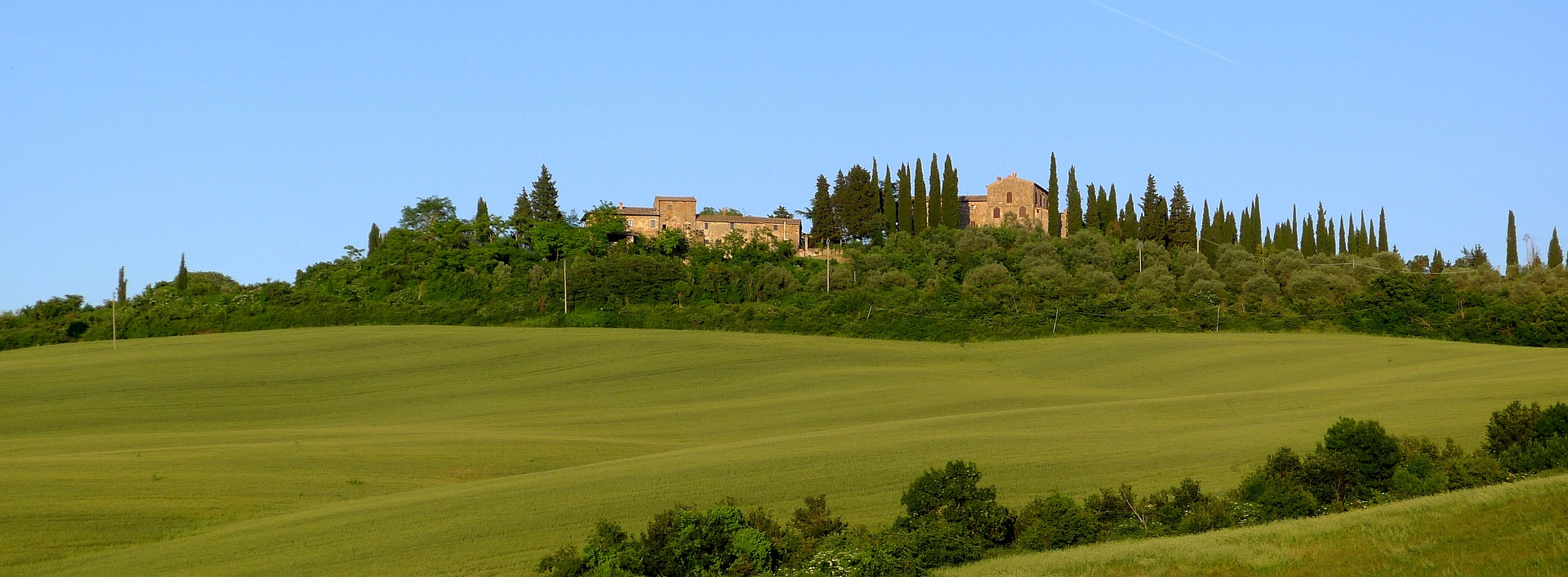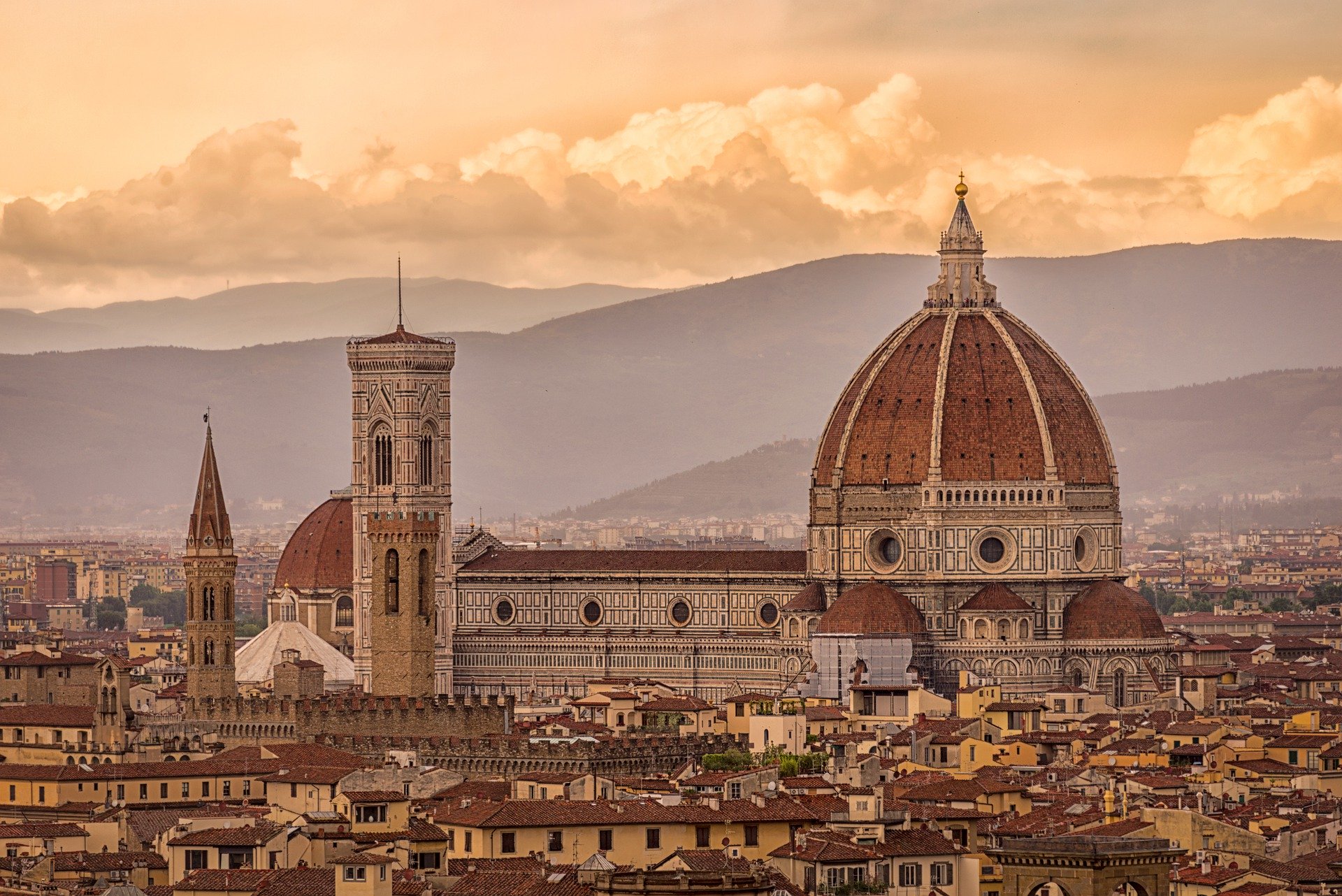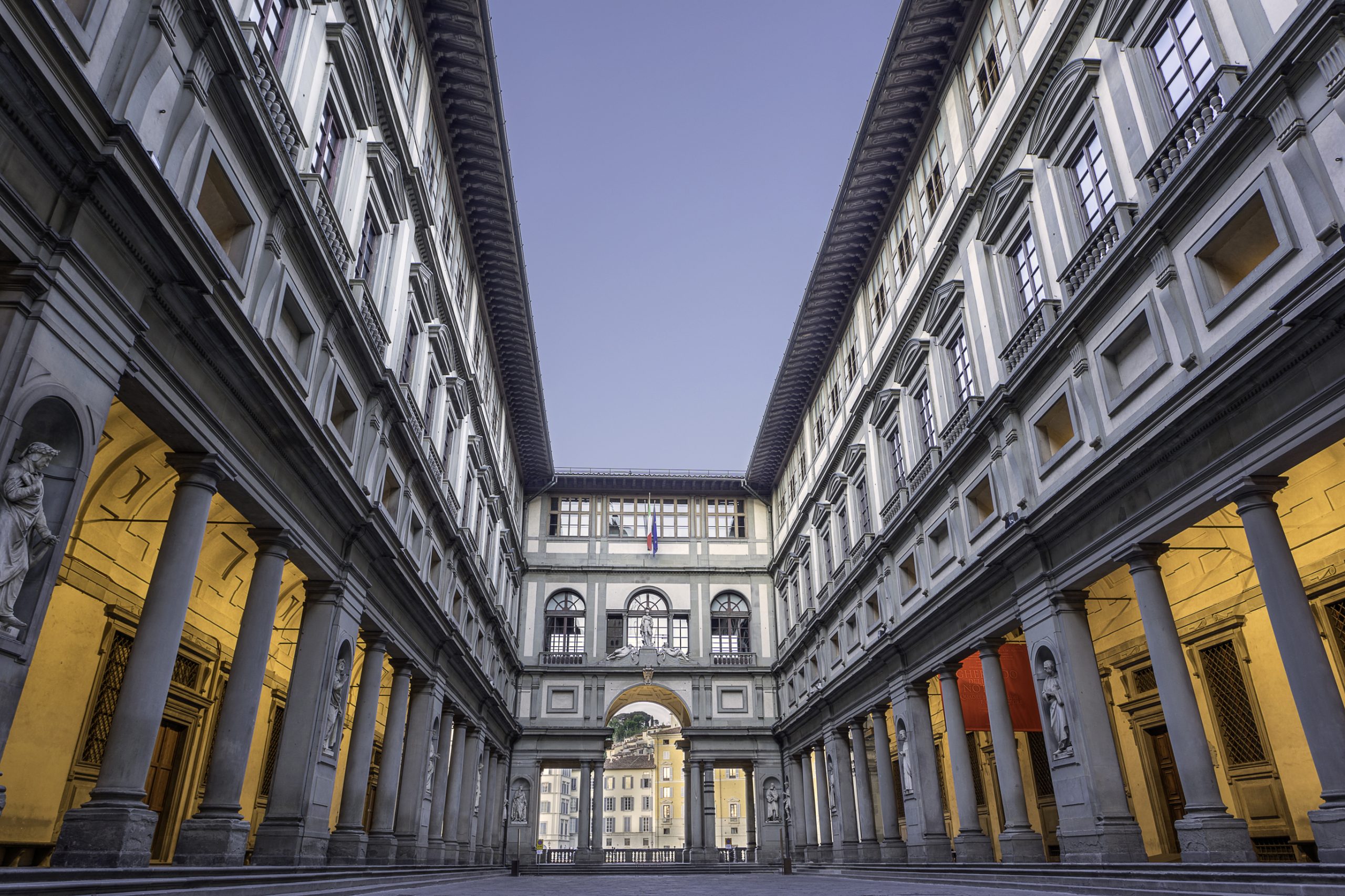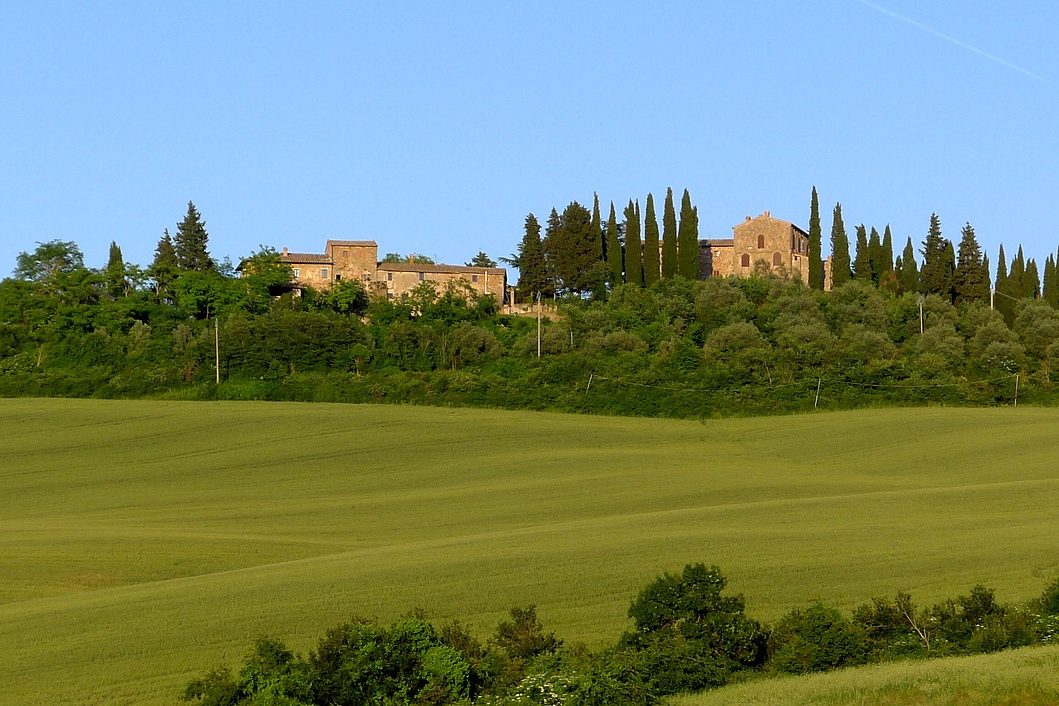Our Tuscan Muse introduces the agriturismo, taking a tour around the Tuscan valley.
Tuscany is one of the most prosperous agricultural regions in Italy, specializing in cereals, olives and olive oil, and of course, wine. Tuscany is also known for growing vegetables and fruit. It is truly the agricultural region of Italy producing cattle, horses, pigs, and poultry.
At one time, Tuscan agriculture was characterized by the “mezzadria system”, with the landlord, who provided the capital and payment of expenses, sharing the harvest with the tenant, who supplied the labor. Every estate worked upon the mezzadria plan was divided into various farms or “poderes”. The poderes ranged in size from seven to thirty acres, or even more. Upon each podere stood a house, stables, and outbuildings, all provided by the “padrone”, the actual owner of the land. The worker or “contadino” gave his labor, so that a farm was often handed down from father to son, from one generation to another, and the peasant learned to love the land that he cultivated as something of his own.
In 1982, the Mezzadria system was made illegal. All pre-existing contracts were transformed into a rental agreement by simple request of either the owner of the land or the worker. Today in Tuscany, there is a growing tendency toward agricultural cooperatives. Some farms have been converted into agriturismi, otherwise known as “farm-stays”.
Tuscan Muse hosts its creative workshops and escorted tours at Le Casacce, which is an agriturismo. Le Casacce was once one of the largest olive oil producers in the area. But, don’t go getting the wrong idea when you think, “farm”. Instead, think of being able to experience the countryside of Tuscany in converted, ancient farmhouses (the former podere homes), which have been preserved in the spirit of ancient Tuscan traditions. The hospitality is friendly and you will soon feel that you are part of the Casacce family.
One of the best parts about your stay at Le Casacce will be…. the food! Every item on your plate has been locally sourced and is part of Tuscany’s slow food movement. The food is fresh and seasonal and most of all, delicious. It serves a higher purpose of supporting the local farmers, the nearby villages and our Tuscan neighbors.
More at http://www.tuscanmuse.com






























